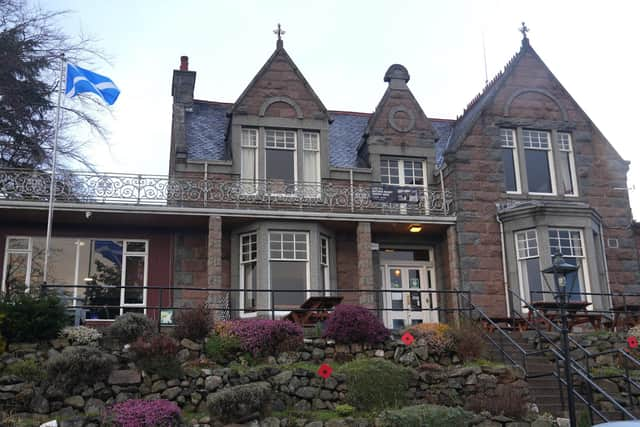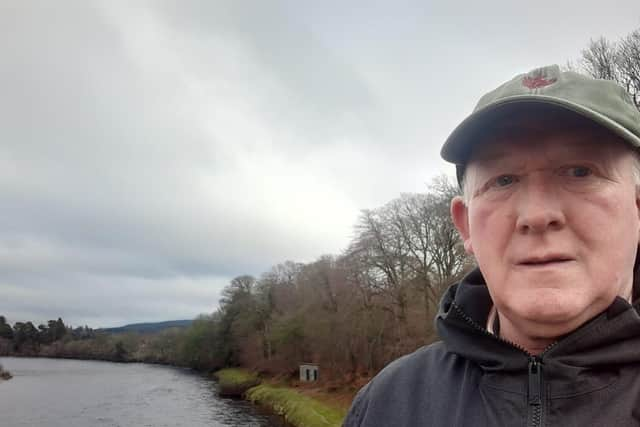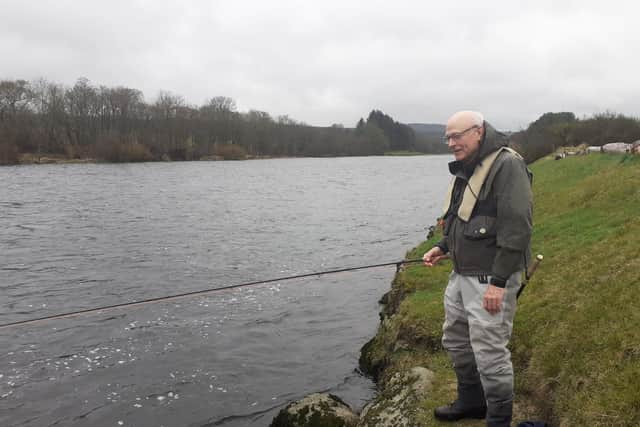Exclusive:Scotland fishing hotels in north east at risk of closure due to 'tragic' decline in salmon population and visiting anglers
Hotels in the north east of Scotland once bustling with visiting fishermen are having to sell empty rooms online for cheap rates and are at risk of closing down altogether due to a lack of business.
It comes as Atlantic salmon were reclassified as endangered by the ICUN in December last year.
Salmon populations in the country’s rivers have been declining for decades, with Scottish Government figures published in 2022 showing rod catch of salmon (35,693) at its lowest since records began. While the plunging fish population damages the wider eco-system, the decline has put the rural economy in the north east at risk.


Craig Forbes, who runs Banchory Legion, a hotel known for being fully booked during fly fishing season, said the business has been on the brink of closure due to the decline in fishing tourism.
Speaking to The Scotsman as part of the Hay’s Way series, Mr Forbes said: “Just a couple of weeks ago we wondered if we could really stay open much longer it’s got that bad. We relied on the fishers coming to stay, and would often get the same ones coming here each year, but now they are all gone.
"From February 1 right to the middle of June, we used to be solid with all the rooms full. Over this period the town would be booming with fishermen who would go to the bars, the restaurants and stay in the hotels, but it’s been decimated because of the decline in fishing. There’s nothing going on here anymore.
"Now we’re having to sell our rooms off cheaper online to get workmen because it’s all the business we can get now.”


With the hike in energy bills and food prices, Mr Forbes said hospitality was struggling nation-wide. But in the north east, there is the extra hit of the collapsing fishing trade, he said.
“Last week we had three fishermen here for four days and that’s all we’ve had in over a month,” he said. "I’ve seen such a change in just the six years I’ve been here and no one seems to be doing anything about it.”
Mr Forbes said some hotels popular for fishing guests had already closed down, including The Douglas in Banchory High Street, which shut last year.
Carol Fowler, who part owns the Banchory Lodge, said the fishing sector in the north east had been “a lifeline” for not just the industry, but “the whole rural economy”.


"Fishing is a massive part of the community and the lack of fish means there are fewer fishermen coming, so the number of people renting rooms, lodges, eating out in restaurants is all less,” she said. "The fishing really suffering is having a huge impact on the local economy.”
Ghillies across the north east said they had been pressing ministers to take action to reverse the decline of salmon populations for more than a decade. One of them is Robert Harper, on the river Dee, a location once considered one of the premier worldwide destinations for fly fishing.
He said while there were many reasons behind the salmon population decline, including predation at sea and non-native species, the lack of action taken on the number of seals swimming up the river had worsened what was already “a crisis”.
There have been several sightings of the mammals in the past few weeks some 30 miles up stream in the river Dee – a distance seals have never been seen reaching before by local ghillies.
Mr Harper said: “Seeing seals in the river is nothing new, but we saw one that reached a distance none of us have ever seen before. They have cleaned us out in the lower river, so they are coming further up stream and the sightings are becoming more frequent.”
"Seal scarers” have been tried and tested over the years, but the mammals are still making their way in.
Mr Harper said: “Three years ago we were told by [rural affairs secretary] Mairi Gougeon that she will 'urgently look into this', but nothing has been done. We’ve now been told it will be three years before there will be a device that will maybe keep the seals out the river.
"In the meantime the river and fisheries are just going down the tubes. The Scottish Government is culling deer to protect trees – tens and maybe hundreds of thousands of deer. Yet we have these iconic salmon in drastic decline and they don’t have the same desire to protect them. I have been on this river for over 45 years, and we have been talking about these problems for a long time, but it always falls on deaf ears.
"We need to get government on side, get them to actually deliver, but also find a way to get licensing to a point where salmon are at the top of the list, not at the bottom.”
Professor Phil Burnham, who has been visiting Scotland to fish since the 1970s, described the decline in salmon populations and its impact on the rural economy as “a real tragedy”.
"Since coming to Banchory I’ve seen the hotels and businesses just go downhill like a sledge,” he said. "The British Legion would be fully booked months in advance, but now we’re the only fishing party in the hotel.
"There used to be two ghillies on this beat, but now there’s just one. It’s really impacting rural jobs.”
Prof Burnham, who stays at the Royal Legion when he fishes on the Dee, said his group used to average 19 to 20 fish a week.
"Now, we aren’t catching anything,” he said. “We were here in February and caught zero, and again in March, and caught zero.”
The Scottish Government pointed to its Wild Salmon Strategy Implementation Plan to “tackle the wide range of pressures acting on wild salmon”, saying it invested more than £1.25 million for the recovery of the species.
A spokesperson said: “We recognise that seal predation is one of the pressures acting on salmon, which is why we continue to support research to into non-lethal solutions to address seal-salmon interactions in rivers. In 2023, we supported fisheries managers, through the Marine Fund Scotland, to purchase acoustic deterrent devices for the purpose of managing such interactions.”
Comments
Want to join the conversation? Please or to comment on this article.